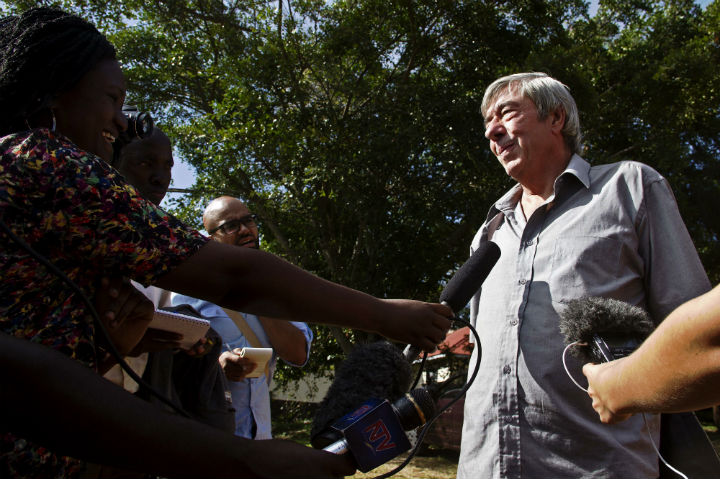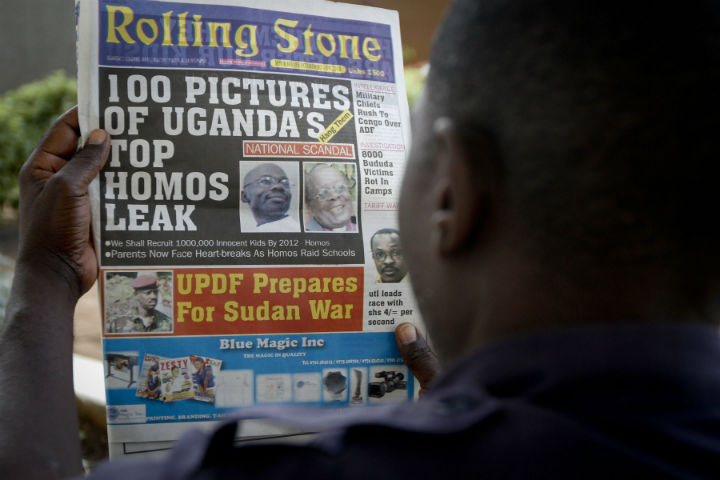VANCOUVER – A gay British man facing a charge of “trafficking obscene material” in Uganda may avert going to jail under the country’s oppressive anti-homosexual laws because the government won’t renew his visa.

Bernard Randall was arrested along with his Ugandan partner Albert Cheptoyek after images of the two men engaging in sexual activities were stolen and published in a tabloid newspaper.
Under Ugandan law, sexual acts with people of the same gender are banned and those engaging in homosexual acts can face lengthy prison terms.
Randall, 65, was set to stand trial next Wednesday, in the city of Entebbe, on a charge of trafficking obscene material. Randall did not share the images of him and Cheptoyek, rather they were taken from his stolen laptop.
According to Al-Jazeera, the tabloid newspaper that publicized the images of Randall and Cheptoyek “specializes in sordid sex and celebrity stories.”
“If any trafficking was done, it was by the robbers who took the laptop, and the newspaper for printing them,” he told Al-Jazeera earlier this month.
Randall may not have to face the charge now as the Ugandan government plans to deport him on Dec. 6.
In order to stand trial, his visa would have to be extended. The Ugandan government has denied the extension, making him “an illegal alien.”
“I also see this as a move by the Ugandan authorities at the highest level to get me deported without it being seen as an anti-homosexuality related action,” he told the Independent this week.
Randall told BBC he’d rather see the charges “formally dropped.” He said he was happy to go back to Britain, but wanted to be able to return to Uganda.
It’s not clear if Randall’s trial will go ahead, now that he’s going to be kicked out of the country, but 30-year-old Cheptoyek, who remains in police detention, will still face trial on a more serious charge of carrying out acts of gross indecency — a charge that could lead to a seven-year sentence if he’s found guilty.
He already fears for his life, he told the Independent.
“We don’t know if we are going to be killed because we’re already in the newspaper so everyone knows I’m gay and we’re scared for our lives because in Uganda it’s not allowed,” he said.
Uganda has faced international scrutiny for its treatment of lesbian, gay, bisexual and transgender people, particularly after trying to pass legislation that was widely referred to as the “kill the gays” bill.
In 2009, a bill was introduced in Ugandan parliament that would strengthen punishments for homosexual acts, including life imprisonment for having sex with someone of the same gender or the death penalty if someone charged was HIV-positive, having sex with a minor or if someone is accused of being a repeat offender.
It would have also paved the way to punish people who failed to report homosexual activity to police.
The bill has been dropped, revised, and re-introduced since that time, but has yet to be passed.
Canada is among the countries that have condemned the proposed legislation.
An article in the National Post, published in March, indicated Canada’s Dept. of Foreign Affairs has also been “quietly financing a concerted grassroots effort” to assist local LGBT organizations.





Comments